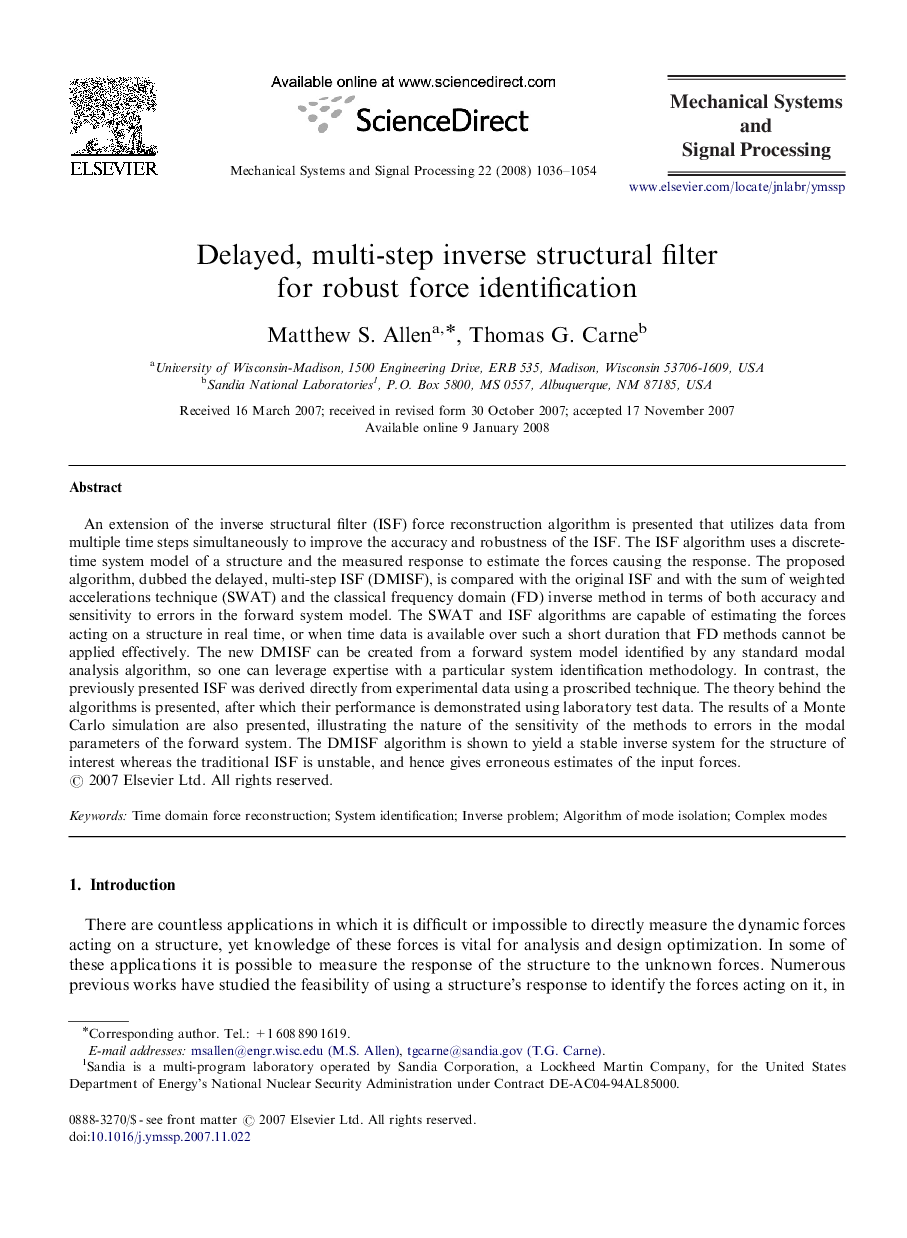| Article ID | Journal | Published Year | Pages | File Type |
|---|---|---|---|---|
| 559874 | Mechanical Systems and Signal Processing | 2008 | 19 Pages |
An extension of the inverse structural filter (ISF) force reconstruction algorithm is presented that utilizes data from multiple time steps simultaneously to improve the accuracy and robustness of the ISF. The ISF algorithm uses a discrete-time system model of a structure and the measured response to estimate the forces causing the response. The proposed algorithm, dubbed the delayed, multi-step ISF (DMISF), is compared with the original ISF and with the sum of weighted accelerations technique (SWAT) and the classical frequency domain (FD) inverse method in terms of both accuracy and sensitivity to errors in the forward system model. The SWAT and ISF algorithms are capable of estimating the forces acting on a structure in real time, or when time data is available over such a short duration that FD methods cannot be applied effectively. The new DMISF can be created from a forward system model identified by any standard modal analysis algorithm, so one can leverage expertise with a particular system identification methodology. In contrast, the previously presented ISF was derived directly from experimental data using a proscribed technique. The theory behind the algorithms is presented, after which their performance is demonstrated using laboratory test data. The results of a Monte Carlo simulation are also presented, illustrating the nature of the sensitivity of the methods to errors in the modal parameters of the forward system. The DMISF algorithm is shown to yield a stable inverse system for the structure of interest whereas the traditional ISF is unstable, and hence gives erroneous estimates of the input forces.
